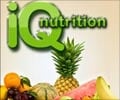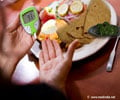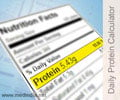FAQs
1. Do macrominerals and trace minerals interact with each other?
Yes, minerals can interact which can cause both useful and harmful effects.
For example, calcium and magnesium support each other in muscle and bone health.
High intakes of calcium may interfere with iron and zinc absorption, and an excess intake of one mineral sometimes can reduce the effectiveness of other minerals (14✔).
2. Are all minerals absorbed equally by the body?
No, absorption rates vary based on the mineral�s form, food source, and factors like age and health status. For instance, the body absorbs heme iron (from animal sources) more efficiently than non-heme iron (from plant sources). Phytates in grains and oxalates in vegetables can also inhibit mineral absorption (15✔)
3. What happens if we consume too much of a mineral?
Excessive intake of minerals, often from supplements, can lead to toxicity and health issues. For example, too much sodium can increase blood pressure, while high levels of iron can lead to liver damage. It�s best to get minerals from food sources and take supplements only as recommended (16✔)
4. What causes trace mineral deficiencies?
Low intake of foods rich in minerals
Malabsorption Disorders
High Intake of Competing Minerals: For example, high zinc intake can interfere with copper absorption (17✔).
5. Who is at the highest risk for trace mineral deficiencies?
Populations at risk include pregnant or breastfeeding women, infants and children, elderly individuals, those with restrictive diets (e.g., vegans), and people with medical conditions affecting absorption (e.g., gastrointestinal disorders)(18✔).
6. Which mineral causes brain fog?
Deficiencies of minerals calcium, magnesium, iron and zinc can cause brain fog, impaired focus, and memory problems (19✔).
7. What are the three important minerals needed for the human body?
The three important minerals needed for human body are iron, potassium and calcium.
Calcium is an abundant mineral in the human body, it is important for strong bones and teeth, regulating heart rate, and clotting blood. Iron is needed for red blood cell production which also helps in oxygen oxygen-carrying function of blood. Potassium is important for maintaining a balance of body fluid and heart functioning (20✔).
8. What are the primary minerals found in sea salt?
Sea salt is a natural source of various essential minerals, including sodium, magnesium, calcium, potassium, iron, zinc, and iodine (in some types). These minerals contribute to various bodily functions, such as fluid balance, nerve function, bone health, and immune support.
9. What minerals are abundant in sea moss?
Sea moss is a rich source of essential minerals like iodine, calcium, magnesium, potassium, zinc, iron, selenium, and phosphorus. These minerals play crucial roles in thyroid health, bone strength, muscle function, immune support, and overall well-being.

 Email
Email





















I have PBC. How can I limit my copper intake to 2 mg daily and still have a healthy, nutrient rich diet?